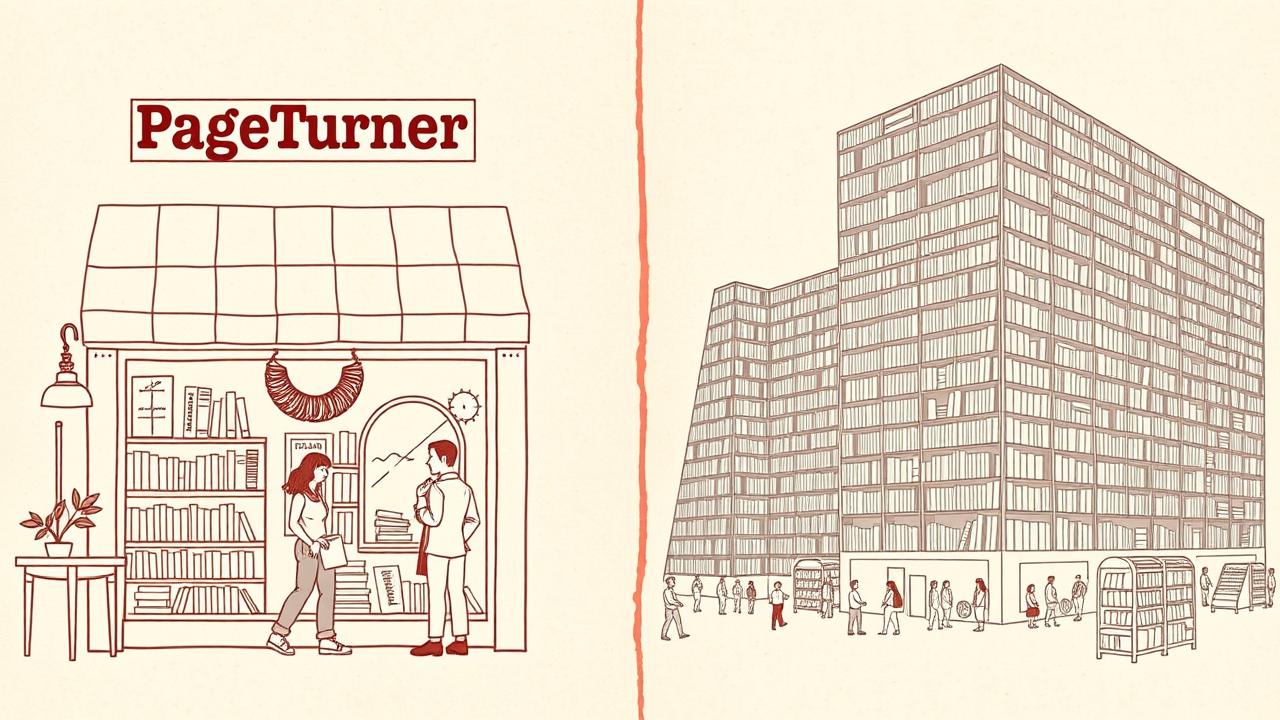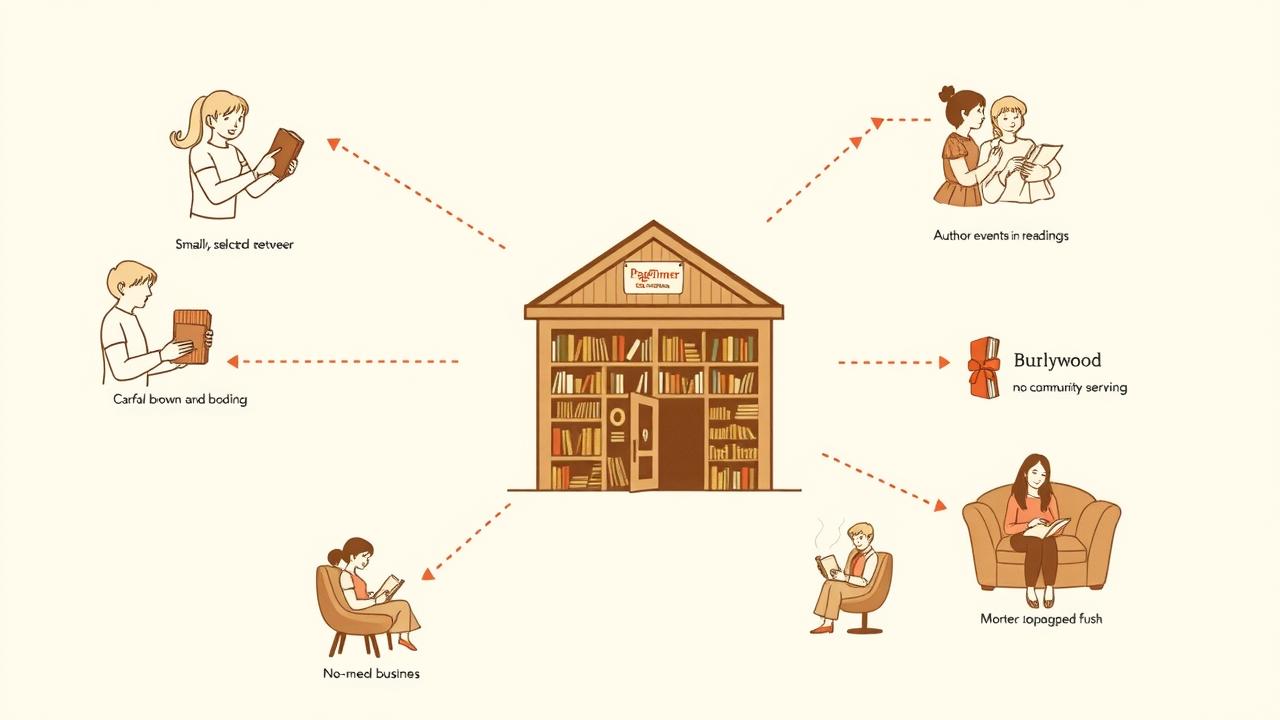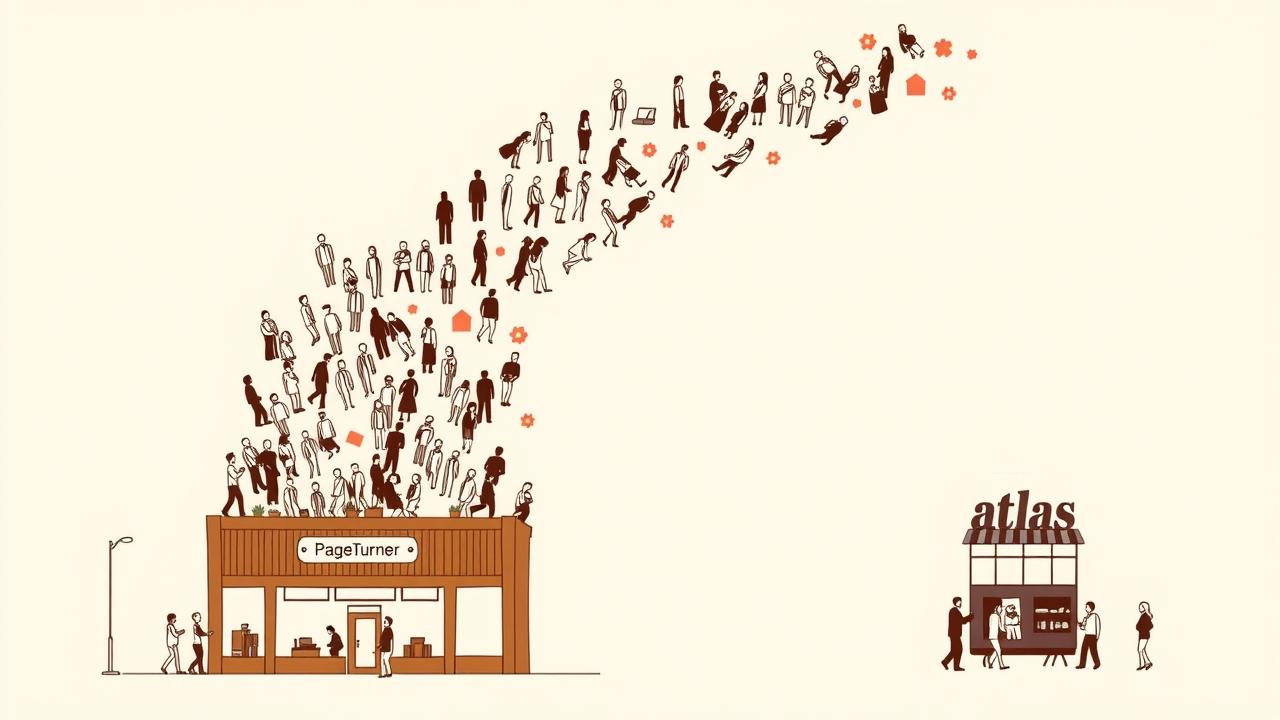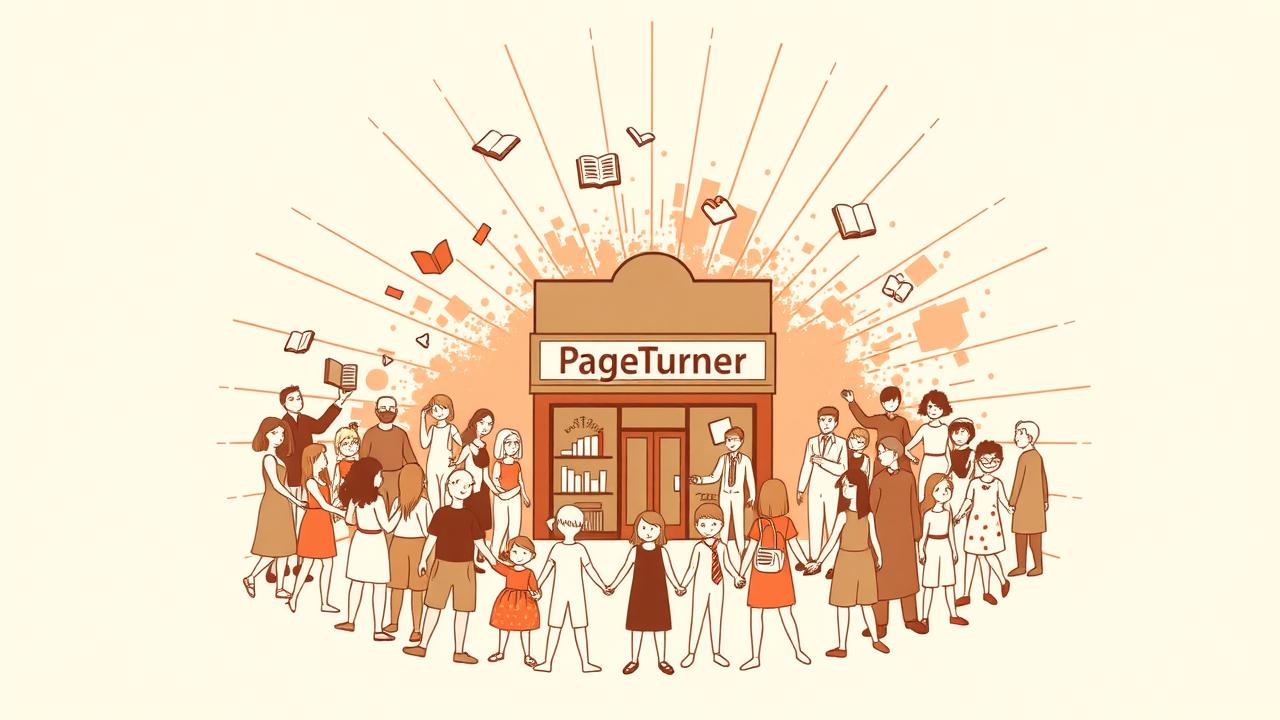Illustration type -> Realistic

How a Tiny Bookstore Outsmarted a Retail Giant—And Won
A Case Study on the Power of Niche Branding
The Battle: Indie vs. Corporate
For years, PageTurner Books, a tiny independent bookstore in Riverton, struggled against Atlas Books, the corporate retail giant that had taken over the town.
Atlas had everything—massive inventory, aggressive discounts, and a sleek in-store café. PageTurner, on the other hand, was a single-location shop with limited stock and no budget for major promotions.
It seemed like a losing battle.
Until PageTurner made one bold decision: Instead of competing on size, they would win on experience.
What happened next changed everything.
 The Community Hub Strategy
The Community Hub Strategy
The Strategy: Becoming the Town’s Literary Hub
While Atlas focused on volume and sales, PageTurner focused on community and connection.
Instead of just selling books, they transformed their store into a gathering place for book lovers.
📖 Personalized Recommendations – Unlike Atlas, where customers wandered aimlessly, PageTurner trained its staff to curate book selections for each visitor.
🎭 Live Book Readings & Events – They hosted weekly author meetups, poetry nights, and storytelling sessions—things Atlas never bothered to do.
🎁 The “Secret Shelf” Membership – They introduced an exclusive book subscription service where members received hand-picked books tailored to their tastes, delivered with a handwritten note.
📚 A “No-Rush” Zone – Where Atlas was all about efficiency, PageTurner encouraged lingering, browsing, and real conversations about books.
The results? Loyalty like never before.
 The Growth of Community
The Growth of Community
The Outcome: A Community-Driven Victory
In just 18 months, PageTurner saw a 45% increase in foot traffic and tripled their returning customers.
People didn’t just come to buy books—they came for the experience.
Atlas, despite its dominance, struggled to compete. They had size, but not soul.
PageTurner had something priceless—a community of readers who felt at home.
 Depth vs. Width Strategy
Depth vs. Width Strategy
Lessons for Any Business
1. Focus on Depth, Not Width
Atlas had every book, but PageTurner made every book matter.
Instead of being everything to everyone, they became the best at one thing: cultivating a reading culture.
Ask yourself: What can I offer that a bigger competitor never could?
2. Make Customers Feel Like They Belong
People don’t just buy products—they buy stories, experiences, and a sense of belonging.
PageTurner didn’t sell books. They sold community, personal touch, and an escape from the ordinary.
3. Play to Your Strengths
Instead of fighting on Atlas’s terms (low prices, large stock), PageTurner changed the game and built an experience that corporate giants couldn’t replicate.
 The Irreplaceable Victory
The Irreplaceable Victory
Final Thought: Small Wins by Thinking Big
PageTurner didn’t win by being the biggest.
They won by being the most irreplaceable.
And that’s the secret.
If you can give people something they can’t get anywhere else—something personal, something memorable—they won’t just buy from you.
They’ll root for you.
And that’s how a tiny bookstore beat the giant.